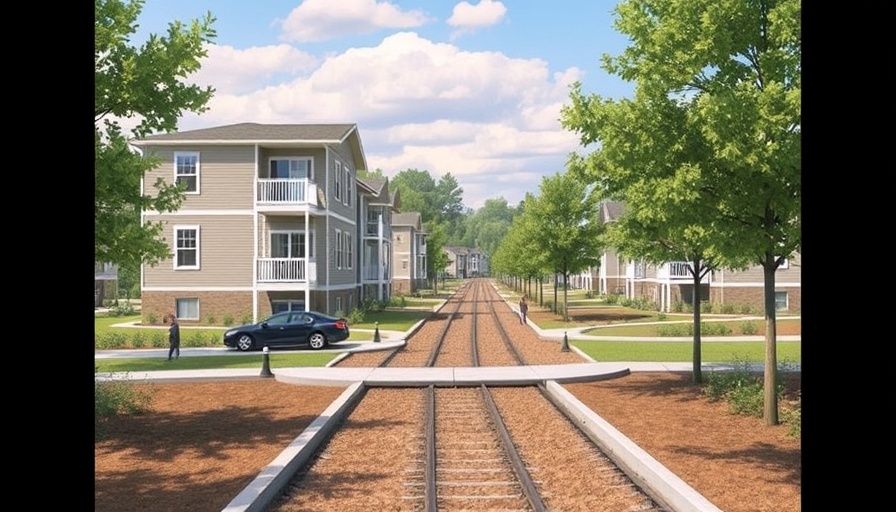
Understanding the Revolutionary SkyLINE Housing Project in Rancho Bernardo
The SkyLINE project initiated by Affirmed Housing and the San Diego Metropolitan Transit System (MTS) represents a significant step forward in addressing affordable housing challenges in California. Located at the Rancho Bernardo Transit Station, SkyLINE aims to create housing options that are closely integrated with public transportation, fostering a lifestyle that encourages public transit use and community living.
Connecting Housing and Transportation: A New Urban Design
As urban populations continue to grow, the demand for affordable housing has skyrocketed. The innovative design of SkyLINE directly responds to this need by situating residential units next to transit hubs. According to Sean Myott, MTS manager of real estate assets, this approach not only makes access to public transportation more convenient but also enhances safety through increased foot traffic in and around transit areas. Living near public transport can encourage residents to opt for the trolley instead of driving, thereby reducing carbon emissions and traffic congestion.
The Vision for SkyLINE: More Than Just Apartments
SkyLINE is projected to include a total of 100 apartments, which are carefully designed to accommodate a diverse demographic. The breakdown includes 49 one-bedroom, 25 two-bedroom, and 25 three-bedroom units - specifically aiming to cater to larger families, which is often a gap in affordable housing markets. With amenities like a community room, learning center, and outdoor spaces, the project seeks to create a nurturing environment for residents. These features not only promote family living but also encourage social interactions, thereby strengthening community ties.
Future Developments on the Horizon
Affirmed Housing isn't stopping at SkyLINE. With plans for another affordable apartment project at the Beyer Trolley station (estimated at $81 million), the collaboration between Affirmed Housing and MTS is poised to deliver even more housing options. This project further emphasizes MTS's commitment to expanding its property development strategy to include subsidized housing as part of a broader effort to uplift community standards and increase transit ridership.
Incorporating Commercial Spaces for Local Growth
SkyLINE is not only about residential living; it also includes a significant ground-floor commercial space. This commercial element will serve as Affirmed Housing's new corporate headquarters, offering about 14,000 square feet of office space. As outlined by Jimmy Silverwood, president of Affirmed Housing, the move represents a strategic expansion aimed at providing more room for growth. Investing in local commerce directly contributes to community development, creating jobs and fostering economic stability.
Balancing Growth with Sustainability
The projects championed by Affirmed Housing, such as SkyLINE, are not just about construction but revolve around sustainability and community well-being. As California faces pressing challenges related to housing shortages, urban developers are gradually acknowledging the critical interplay between housing and public transit. By prioritizing developments that incorporate both elements, the SkyLINE project exemplifies a scalable model that could be replicated across different Californian cities facing similar issues.
The Community Benefits of Affordable Housing
SkyLINE's community-centric approach fosters multifaceted benefits, including improved educational outcomes due to the availability of learning centers, enhanced family stability with increased access to affordable multi-bedroom units, and the promotion of healthy social dynamics within the living space. By strengthening community bonds, these initiatives resist the fragmentation often seen in fast-growing urban areas.
Conclusion: A Model for the Future
The SkyLINE project stands as a promising move in California’s battle against the housing crisis. By integrating affordable housing developments with public transportation systems, it helps pave the way for a sustainable future where living and commuting are harmoniously balanced. Such projects have the potential to reshape urban living, leading toward an environment where community wellbeing is paramount.
As we look toward the future of urban development, it is clear that collaborative efforts between housing developers and transit authorities can yield substantial benefits. Stay informed about new developments in your area and consider how such initiatives could improve lives.
 Add Row
Add Row  Add
Add 



Write A Comment